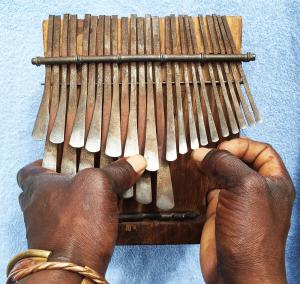Kimchi, a fermented vegetable dish in Korean cuisine, symbolizes the country's identity and heritage, showcasing the importance of cultural preservation. Apart from its rich cultural significance, kimchi is also prized for its nutritional value, abundant in vitamins A and C, and beneficial bacteria from fermentation, promoting gut health. Kimjang, the communal tradition of making and sharing kimchi before winter, fosters community unity and cooperation, reinforcing the significance of food in nurturing social bonds and preserving cultural practices.
10-20-2023
| Institutional and human capacities | Kimchi, a staple in Korean cuisine, boasts diverse regional variations that are indicative of its place of origin. Traditionally a family-made dish primarily prepared by women, it has evolved to involve men, particularly during New Year's and Thanksgiving gatherings. While it is now readily available in stores due to commercial production, Kimchi's cultural significance is celebrated through dedicated museums, including those in Jeonju, Gwangju, and Seoul, offering interactive Kimchi-making experiences for children. Additionally, the Gangnam-based Kimchi Association, established in 2011, aims to enhance the quality of Kimchi, globalize its culture, and contribute to the economy and welfare of its members. | |
| Transmission and education | The process of making Kimchi is primarily learned through family gatherings rather than in-depth education. In early education, children are exposed to the cultural significance of Kimchi through the 'Kimchi song.' Additionally, Kimchi and Kimjang are frequently featured in Korean TV shows, sometimes as cultural activities and at other times as advertising. Research on Kimchi often focuses on its impact on human health, reflecting its reputation among Koreans as a flavorful and nutritious food. | |
| Inventorying and research | Research on Kimchi is often about the effects of Kimchi on human body, as it is largely regarded by Korean people as a food that is not only tasty but also healthy | |
| Policies as well as legal and administrative measures | Since 2020, Korea has designated November 22nd as the national Kimchi day, aligning with the 'Kimjang' season and the symbolic representation of the 11 ingredients used in making Kimchi. This decision was made to honor the cultural significance of Kimchi and its deep-rooted tradition within Korean society. | |
| Role of intangible cultural heritage and its safeguarding in society | Kimchi holds a central place in Korean households, serving as a versatile side dish and a key ingredient in various dishes due to its variable fermentation levels, ensuring minimal waste. Its preservation is rooted in Korean tradition and eating habits, safeguarding its significance without reliance on formal governmental policies. Nevertheless, its use as a "political tool" has sparked cultural tensions, notably in 2020 when South Korea highlighted the distinction between kimchi and the Chinese pao cai certification issued by the ISO, clarifying its unique cultural importance. | |
| Awareness raising | Kimchi, a recognized Intangible cultural heritage in South Korea, has gained popularity not only domestically but also internationally. While its cultural significance is well-known, its specific ingredients and health benefits have been increasingly disseminated through ongoing research. The promotion of Kimchi largely relies on marketing strategies, facilitated by its ubiquitous presence in Korean restaurants and easy accessibility in local markets. Additionally, its visibility in various forms of media, including dramas and movies, has contributed significantly to raising awareness of Kimchi, both within and outside of Korea, leveraging the growing interest in Korean media worldwide. | |
| Engagement of communities, groups and individuals as well as other stakeholders | In some parts of Korea, communal Kimchi-making gatherings serve as both a familial and town-wide activity. While the traditional neighborhood events for making and sharing Kimchi have diminished, the gesture of sending homemade Kimchi as a symbol of familial love still persists. Additionally, related events in 2023 included cabbage-planting volunteer activities for Kimjang preparation and communal sharing events to support those in need within the community. Bonlove annually shares Kimchi with those in need, requesting feedback and photos in return, and has limited application timeframe and selection process. The Fruits of Father Al provides Kimchi to its church members, primarily targeting minorities and the disabled, with limiting eligibility requirements. Saeabong Kimjang sharing event hosted by Hanyang University, is one of the voluntary events carried out by the university, that focuses on those who are having a hard time passing winter by giving out kimchi that was made by the volunteering students themselves through the practice of kimjang. | |
| International engagement | Various institutions such as Museums and Academies provide international visitors with hands-on opportunities to learn how to make Kimchi. In 2016, an Australian musical project released a song called Kimchi, and Korean musicians have produced English songs about Kimchi, allowing a global audience to enjoy them. Daesang Corp. has set up Kimchi factories in Europe, China, and the US, notably with a substantial portion of Kimchi production happening in China. Disputes between the Chinese and Korean governments have arisen over the origin and the attempt to create a Chinese version of Kimchi, leading to several cultural conflicts. | |
| References |
|
|

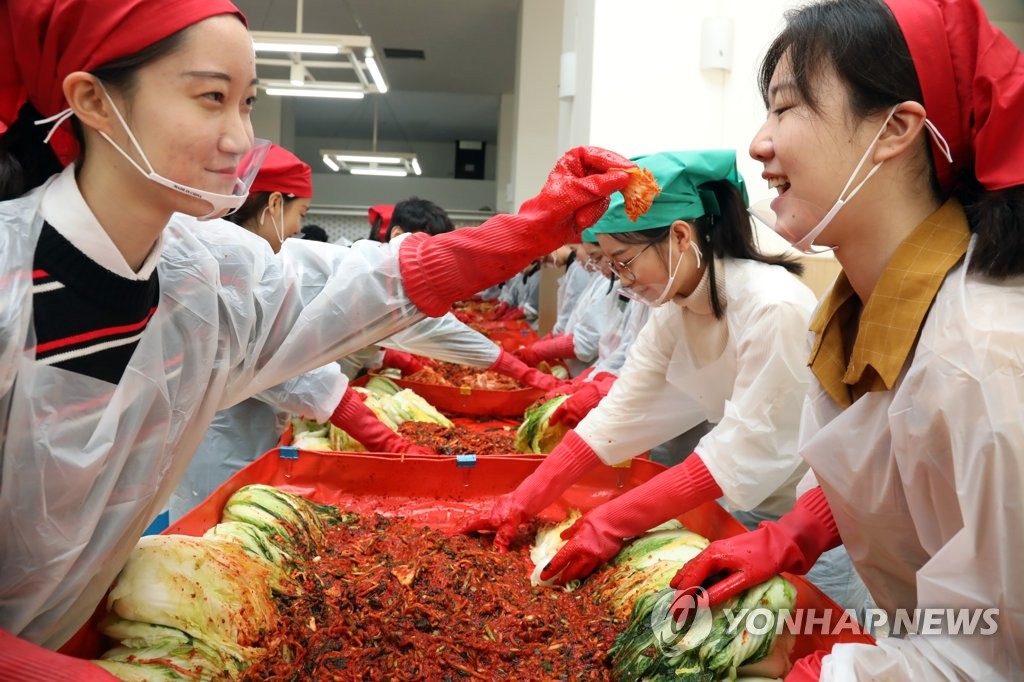
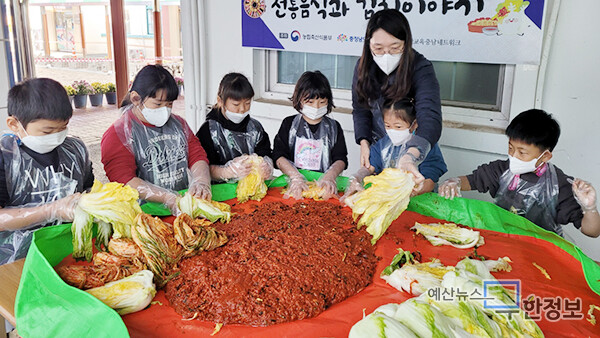
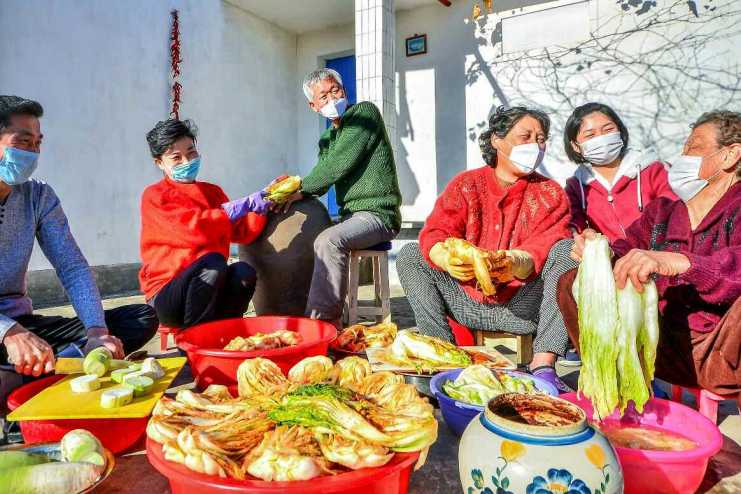
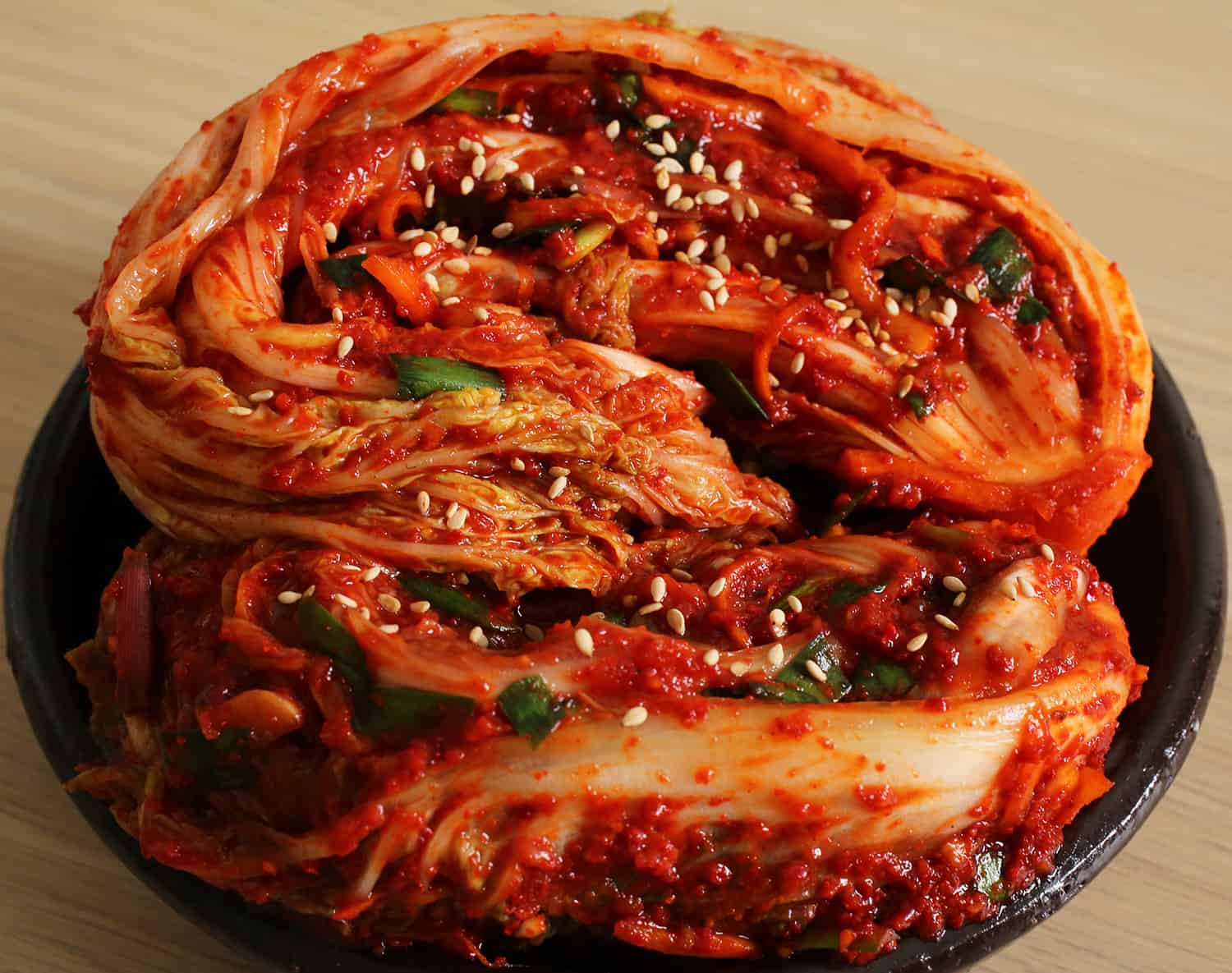



.jpeg)

.jpg)




.png)
.jpg)















_(31711258567).jpg)



















